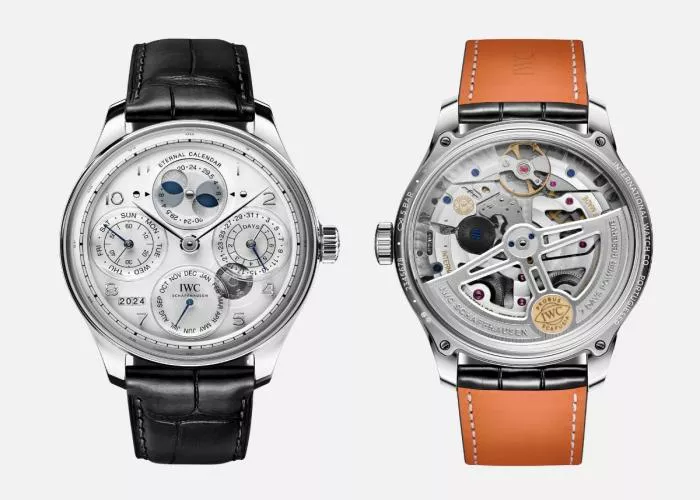IWC Schaffhausen has unveiled its groundbreaking Portugieser Eternal Calendar, a timepiece that promises an astonishing 45 million years of accuracy for its moon phase complication. While the claim may sound audacious, the Swiss watchmaker’s engineers have engineered a solution so precise that it deviates by just one day over that unfathomable timespan.
Debuted at Watches and Wonders 2025 in Geneva, the launch featured a keynote presentation with physicist Brian Cox, who posed a philosophical question to the audience: What is time? While the answer remains elusive, IWC’s latest creation demonstrates an unparalleled mastery of measuring it—long after its wearers are gone.
A Moon Phase Like No Other
At the heart of the Eternal Calendar’s precision is a revolutionary reduction gear system, meticulously designed to mirror the moon’s orbit. A lunar cycle lasts 29 days, 12 hours, 44 minutes, and 2.88 seconds—a challenge for traditional watchmaking. IWC’s solution involved simulating over 22 trillion gear combinations before settling on a three-wheel mechanism that fits seamlessly within the movement.
A Calendar That Thinks Ahead
Beyond lunar accuracy, the watch tackles another horological hurdle: the Gregorian calendar’s leap-year exceptions. Over 400 years, three leap years are skipped (2100, 2200, and 2300) to maintain alignment. The Eternal Calendar’s 400-year gear automatically adjusts for these exceptions, ensuring flawless date tracking for centuries.
Elegance Meets Engineering
The platinum-cased masterpiece houses the new IWC-manufactured 52640 calibre, boasting a seven-day power reserve. Its glass celestial disc displays the moon’s phases as seen from both hemispheres, while the Guilloché-patterned titanium dial adds depth and artistry. Finished with a Santoni alligator leather strap and platinum clasp, the watch is as visually stunning as it is mechanically brilliant.
Pricing remains upon request, but for those fortunate enough to acquire one, IWC’s Eternal Calendar is more than a watch—it’s a legacy. And yes, keeping the receipt might still be wise—just in case.


